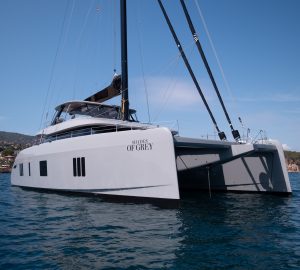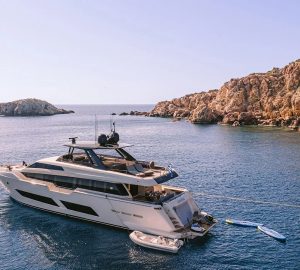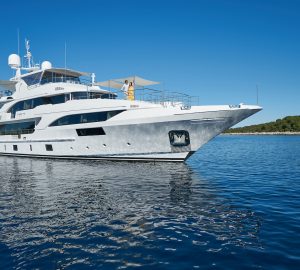On March 24th the Italian Parliament has approved the law no.27/2012 amending the previous fiercely criticised yacht berthing-tax introduced in December 2011 by Italian law no. 214/2011, and due to come into effect on 1 May 2012. According to the Law 27/2012 (hereinafter the “Amendments”) the tax shall not be applied any longer to Italian and foreign yachts berthing or navigating in Italian waters, but it is now aimed only at Italian yacht owners, whether directly or indirectly owning or using a yacht, regardless of whether the yacht is kept in Italy or overseas. The Amendments exempt all foreign owned yachts from paying the tax thus saving the Italian marinas’ industry and related activities.
According to the Law 27/2012 (hereinafter the “Amendments”) the tax shall not be applied any longer to Italian and foreign yachts berthing or navigating in Italian waters, but it is now aimed only at Italian yacht owners, whether directly or indirectly owning or using a yacht, regardless of whether the yacht is kept in Italy or overseas. The Amendments exempt all foreign owned yachts from paying the tax thus saving the Italian marinas’ industry and related activities.
In addition, the Amendments make the tax chargeable on a annual rather than daily rate. The tax is still calculated on the length of the vessel but, in comparison to the scale of the tax detailed in the previous Law 213/2011, it is about 50-90 per cent less onerous. In particular, the new Italian ownership-based tax shall apply to yachts starting from a minimum length of 10 meters that are owned, chartered, leased, also on a finance lease scheme, by individuals/entities that are resident of Italy or having a permanent establishment in Italy. The tax shall apply, without any distinction, to yachts flying Italian or foreign flags and regardless of where the yacht is registered. Indeed, the scope of the tax is the ownership or possession of a yacht by an individual or entity that is resident in Italy regardless of where the yacht is berthing or navigating.
The Amendments specify that the Italian Revenue Office (Agenzia delle Entrate) will soon issue a Circolare (a note providing an interpretation and/or instructions on the practical aspects of the new law) hopefully clarifying the procedures for the payment of the tax and for the communication of the identification data of the yacht and any further information necessary for the controlling activities to be carried out by the Revenue Office. Particularly, the Circolare shall clarify how to inform the Revenue Office of the Italian ownership or use of the yacht or whether there are any Italian citizens on board of charter yachts. At this stage it is difficult to predict the procedures that will be applied. It is likely that the procedures that are being envisaged by the Revenue Office will generate a lively debate within the yachting community. The Amendments, however, already set out that the captain of a yacht owned or leased by Italian citizens shall provide evidence of the payment of the tax to the Customs Office or to the refuelling station for the annotation in the load and unload register and for the subsequent controls in order to obtain subsidised fuel.

















